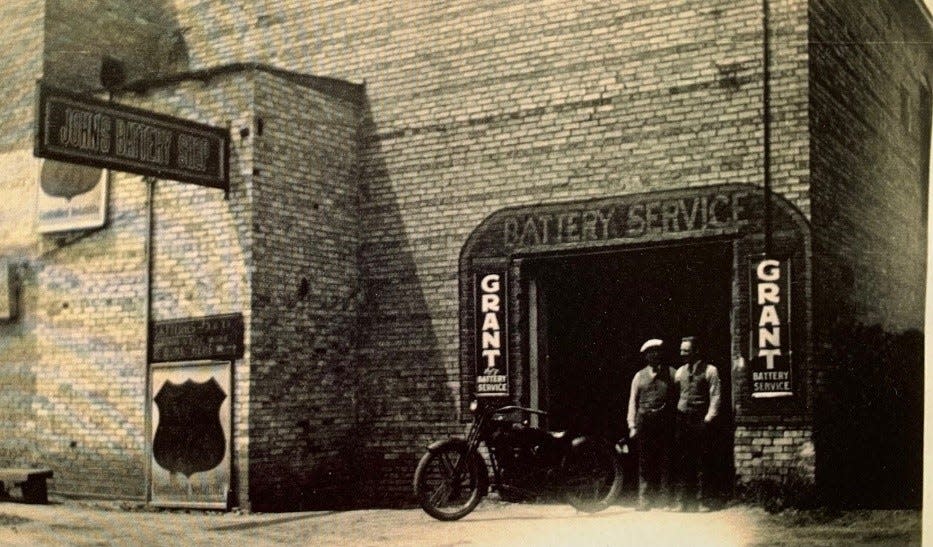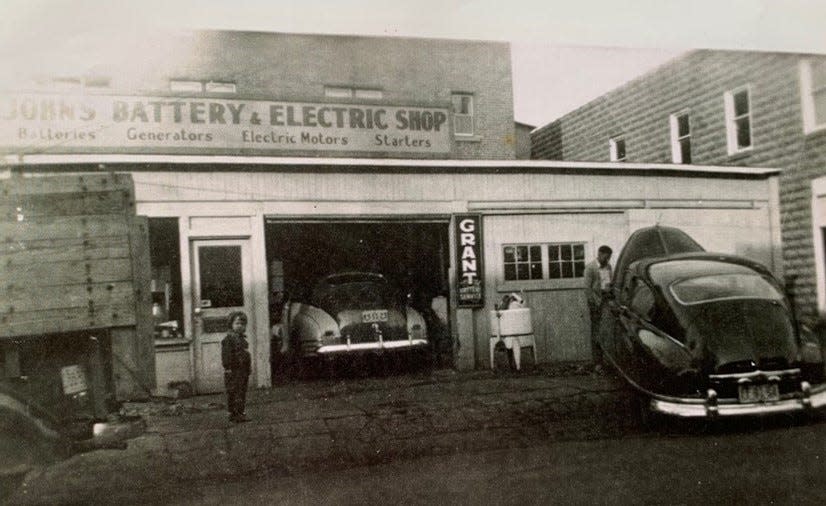Steve VanderVeen: The history of John's Battery and Electric

John Gras created his own job during the Great Depression.
He was born in 1909. In 1932, he acquired a battery charger, a soldering torch and a few other tools, and opened a battery service business in a rented space immediately north of the post office in downtown Zeeland.
To make people aware of his services, John sent a penny postcard — which set the standard for the next 90 years. It read:
“Dear friends, I wish to announce that I have opened a battery and electric shop located next to Isaac Van Dyke Co. Implement Store on North Church Street (in) Zeeland. I believe my prices will be of interest to you.
"Your battery recharged for 24 cents. Also, special prices on repairing generators, starters, batteries and other electrical work. Genuine Grant Batteries at $4.95 and up, all guaranteed for 12, 18 and 24 months (according to size and price).
"Also have used and rebuilt for $2.50 and up. Your leaky milk cans soldered for 15 cents each and cash paid for junk batteries. All work guaranteed and at ‘depression’ prices. Give me a trial and be convinced.”
In those days, gathering around the radio was a popular form of entertainment, but there were few radio stations. To enhance receptivity, people strung wire antennas between buildings or trees and grounded them. They'd gather around their radios in the evenings.

Unfortunately, few rural homes had electricity, so country folk needed two sets of batteries for their “farm radios" — one set they charged while the other was in use. So, when people came to town on Saturdays to do their shopping for the week, they'd drop off their dead batteries and pick up recharged ones.
In 1936, John moved his business to Elm Street, directly behind the Zeeland Hotel — which, at that time, was located behind Zeeland State Bank.
As electricity became more accessible, electric motors became more prevalent. John worked on them. He rebuilt starters and alternators for cars, scooters and tractors, and sold their owners the batteries they needed to power those starters.
He also fixed washing machines and other appliances with electric motors. In 1952, he bought the house north of his shop on Elm Street. On the driveway, he built a brick structure for his shop at 41 N. Elm St.
He built the new shop, in part, because he had more customers than space and needed room. He also needed more space for storage, as he never threw anything away. Having lived through the Great Depression, he wanted to make sure he was prepared for the next one.

John found a way to recycle oil when he designed and built his own coal-burning furnace. To get more heat, John supplied the fire with used motor oil, which entered the furnace through a tube so the oil would drip directly on the coals. Although customers feared the contraption would blow up, it never did. John trusted his work.
Subscribe:Get all your breaking news and unlimited access to our local coverage
People also trusted John, and he trusted them. For many years, when John made service calls or went home for lunch, he'd leave the doors of his shop open, so customers could drop things off that needed to be repaired or pick things up he'd already fixed.
One of his nine children — John C. — was born in 1955. In 1976, John C. bought the business from his father, who, by that time, was 68 years old. Still, the first John continued working for another 20 years. He died in 1999.
As the new owner, one of the first things John C. did was recycle the four tons of scrap metal his father had accumulated for the next Great Depression. But like his father, John C. continued to rebuild starters and alternators for automobiles and sell batteries.
John C. is now approaching the age his father was when he sold him the business. He's no longer rebuilding starters and alternators. Instead, he's selling batteries to commercial customers for emergency lighting, lifts, scooters and forklifts — and retail customers, who need batteries for cars, boats, RVs and golf carts.
But one thing hasn't changed: the personality of the business. It's still about trust and relationships, those intangible things that made John’s Battery and Electric what it is.
— Community Columnist Steve VanderVeen is a resident of Holland. Contact him through start-upacademeinc.com.
This article originally appeared on The Holland Sentinel: Steve VanderVeen: The history of John's Battery and Electric
